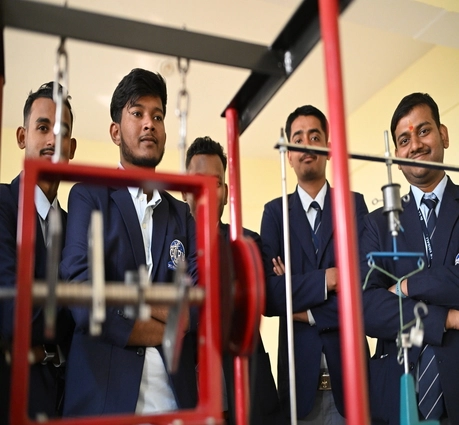Mechanical Engineering remains a top pick for students because of its flexibility and vast job potential. As a well-established discipline, its curriculum thoroughly explores the workings and importance of complex mechanical systems. The B.Tech. degree in Mechanical Engineering, spanning four years, imparts essential knowledge in thermodynamics, fluid mechanics, mechanical design, and structural analysis.
Duration of programme
Level of Study

Mathematics: Calculus, Differential Equations, Linear Algebra, Probability and Statistics.
Physics: Mechanics, Thermodynamics, Electricity and Magnetism.
Engineering Mechanics: Statics, Dynamics, Strength of Materials.
Materials Science: Properties of Engineering Materials, Manufacturing Processes.
10+2 PASS
Physics, Mathematics, and English